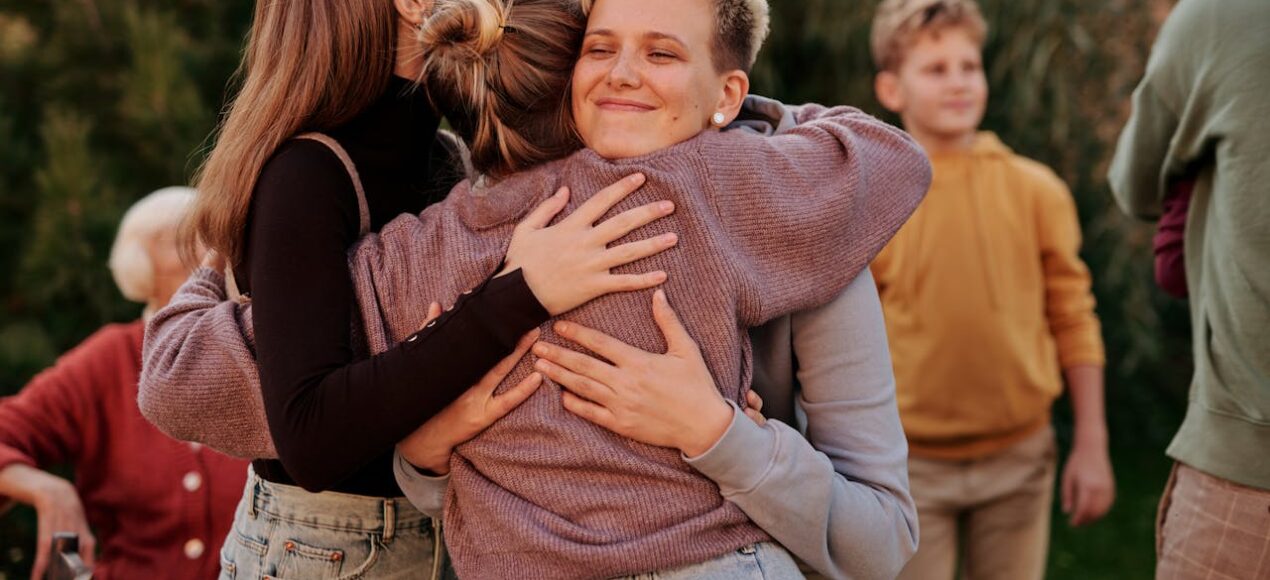Hope’s Destiny in Horsham, PA, offers evidence-based outpatient care for mental health and co-occurring disorders, empowering lasting change through compassionate treatment.
601 Dresher Rd, Suite 105, Horsham, PA 19044

Sep 02, 2025
Mental health challenges can create ripples that extend far beyond our personal struggles, often affecting our closest relationships in profound ways. Whether you’ve experienced depression, anxiety, or other mental health conditions, the journey to recovery isn’t just about healing yourself. It’s also about rebuilding the connections that may have been strained along the way. This blog post offers practical strategies and compassionate insights for reconnecting with loved ones while honoring both your recovery process and their experiences. With patience, understanding, and the right tools, it’s possible to strengthen relationships and create deeper, more resilient bonds than before.
Mental health challenges rarely exist in isolation. When we struggle with conditions like depression, anxiety, trauma, or other mental health issues, our behavior, emotions, and capacity to engage with others often change significantly. These changes can leave loved ones feeling confused, helpless, or even hurt. You might have withdrawn from social interactions, struggled to maintain regular communication, or reacted to situations in ways that felt out of character.
For family members and friends, watching someone they care about face mental health challenges can be both frightening and frustrating. They may have experienced a range of emotions, from worry and concern to anger and disappointment, especially if they didn’t fully understand what you were going through. Some might have felt pushed away despite their attempts to help, while others may have struggled to recognize the person they knew beneath the symptoms of your condition.
It’s important to recognize that this strain on relationships is a common experience during mental health challenges. Your loved ones may have been affected by:
Understanding these impacts isn’t about assigning blame. It’s about acknowledging the reality of how mental health challenges affect our connections with others. This awareness creates a foundation for healing and provides context for the work ahead in rebuilding these important relationships.
One of the most challenging aspects of healing relationships affected by mental health struggles is finding the balance between accountability and self-compassion. While mental health challenges can explain certain behaviors, acknowledging the impact of our actions on others is a crucial step toward rebuilding trust.
This acknowledgment doesn’t mean carrying the burden of shame or excessive guilt. Instead, it’s about recognizing that both your struggles and their effects on others can be simultaneously true. Your mental health challenges were real and valid, AND your loved ones’ feelings of hurt or confusion are equally valid.
Taking responsibility might look like:
It’s essential to approach this process with self-compassion. You were doing the best you could with the resources and understanding you had at the time. Now, with better awareness and support, you can make different choices while honoring your journey toward wellness.
Accountability isn’t about punishing yourself or seeking forgiveness before you’re ready. It’s about creating a foundation of honesty and transparency that allows trust to rebuild naturally. This process requires patience, both with yourself and from others, as you work to align your actions with your values and commitment to healing.
Effective communication is the bridge between understanding and action in rebuilding relationships. After mental health challenges, this skill may need conscious rebuilding, but with practice and patience, you can develop stronger communication patterns than before.
Here are key strategies for having meaningful conversations with loved ones:
1. Choose the Right Time and Place
2. Use “I” Statements to Express Yourself
3. Practice Active Listening
4. Be Honest About Your Limitations
5. Address Misunderstandings Promptly
Rebuilding communication patterns takes time. There may be moments of awkwardness or difficulty, but these are natural parts of the process. What matters most is maintaining a commitment to open, honest dialogue while being patient with yourself and others as you develop these skills.
Healthy boundaries are essential for both recovery and relationship rebuilding. These boundaries serve as guidelines that protect everyone’s well-being while creating space for healing to occur. Understanding how to set and maintain boundaries benefits both you and your loved ones during this sensitive time.
Your personal boundaries might include:
Just as you need boundaries, your loved ones may need to establish their own:
When establishing boundaries:
Remember these key principles:
Setting boundaries isn’t about creating walls. It’s about building a foundation for sustainable healing and stronger relationships. When both parties respect each other’s boundaries, it creates a safe environment where trust can flourish and genuine connection can grow.
Healing from mental health challenges takes time, and setbacks are a natural part of the journey. Some days will feel like significant steps forward, while other days may seem like steps backward. These fluctuations don’t erase your progress. They’re opportunities for learning and growth. What matters is maintaining gentle persistence while respecting both your needs and those of your loved ones.
Supporting each other during this time means learning to recognize and respect different healing rhythms. It involves being present without pushing for more than someone can give, offering help when appropriate, and maintaining hope while staying realistic about challenges. This balanced approach helps create an environment where both you and your loved ones can heal at your own pace.
Patience isn’t just about waiting. It’s about actively working on your recovery while giving yourself and others the grace to process and heal. With time and consistent effort, relationships can not only recover but often grow stronger through this shared experience of healing and understanding.
As you work on rebuilding relationships, it’s important to recognize both signs of healing and signs that a relationship may need to take a different path. Understanding these signs can help you make informed decisions about your relationships while honoring your recovery journey.
Healthy relationships often show these signs of progress:
However, not all relationships can or should be restored. If trust remains broken despite genuine effort, communication continues to be hurtful or one-sided, or the relationship becomes emotionally unsafe, it may be time to consider letting go. This is not a failure! It’s an act of self-respect and self-preservation. Choosing peace sometimes means accepting that a relationship no longer serves your well-being.
If communication has broken down, trust feels impossible to rebuild, or emotions between loved ones are too intense to navigate alone, it may be time to seek professional support. Healing doesn’t always happen on its own, especially after a period of mental health challenges. Therapy offers a safe, neutral space where individuals, couples, and families can explore emotions, repair misunderstandings, and rebuild healthy patterns of connection.
At Hope’s Destiny, we understand that recovery isn’t just about the individual. It’s about the relationships that shape and support their journey. Our therapists work with partners and families to help rebuild trust, strengthen communication, and create a more supportive environment at home. Whether you’re repairing a relationship strained by depression, anxiety, substance use, or another challenge, our compassionate and evidence-based approach can help guide the way.
You don’t have to do this alone. Contact Hope’s Destiny today to schedule a confidential consultation and take the next step toward hope, healing, and reconnection for yourself and the people who matter most.

At Hope’s Destiny, we know that seeking help takes courage, and we’re ready to walk beside you every step of the way. Our personalized, evidence-based programs provide the support you or your loved one needs to build a stronger tomorrow because everyone deserves a chance to write their own story of recovery.
Copyright © 2026 Hope’s Destiny | All Rights Reserved
PRIVACY POLICY | TERMS OF SERVICE